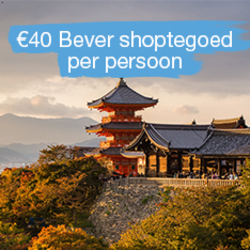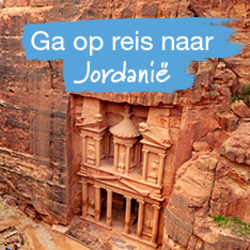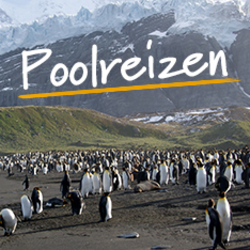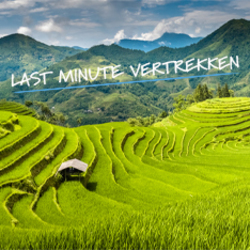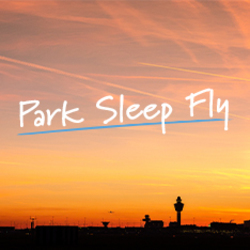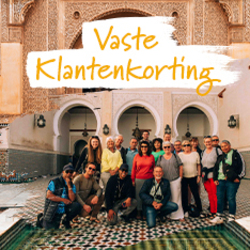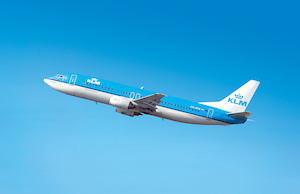Op reis in het najaar
BekijkActivities
- Culture
- Multi-Country Culture Holidays
- Cultural Wonders
- Natural Wonders
- Multi-Country Holidays
- Samarkand and Bukhara : two of the greatest cities on the Silk Road. Almaty with its leafy streets and cafe culture. Kyrgyzstan’s spectacular mountain scenery. Issyk Kul Lake
Food
-
1
Start Tashkent
Those on the group flights arrive very late in the evening into Tashkent, Uzbekistan. Land only passengers can arrive at the hotel any time today, the leader may not be around today.Gabrielle Hotel or similar, Comfortable Hotel
-
2
Full day Tashkent
We have a relaxed morning after the late arrival last night. We later start our sightseeing of this Central Asian capital. This will include visiting Independence Square flanked by public buildings and water fountains and also the Old City with its mausoleums and bazaar. Tashkent was largely destroyed by earthquakes in the 60's and was rebuilt in true Soviet style with pleasant leafy boulevards and lots of fountains to keep the heat down in summer. There are some very interesting museums as well as mosques.Gabrielle Hotel or similar, Comfortable Hotel
-
3
AXF: Morning train to Samarkand, visit Registan Square and other sites of the city
We catch the morning fast train to Samarkand arriving mid-morning. We spend the rest of today and tomorrow morning exploring Samarkand.Samarkand is steeped in history, dating back 2,500 years and impacted by such figures as Alexander the Great, Genghis Khan and Tamerlane, who made it the capital of his empire in the 14th Century. Its central position on the Silk Road meant that it was an important stop on the route from Istanbul to Peking (now Beijing). At its heart is the grand Registan Square flanked by the three grand madrasahs of Ulughbeg (15th C), Sherdor (17th C) and Tilya Qori (17th C).Over the next day and a half we visit the grand square as well as the Gur Emir Mausoleum, burial place of Tamerlane, his sons and his grandson, Ulughbek. The Ulugbek Observatory built in 1420 by Tamerlane’s grandson who was not just a ruler but also a well-known astronomer. We move on to the oversized Bibi Khanum Mosque and Shakhi Zinda – the ‘Living King’ necropolis – with its series of mausoleums dating back to the 14th and 15th centuries. Our final visit is to the exotic Siab Bazaar with its fresh and dried fruit and nuts and other local food produce. The leader may shift the order the sites are visited.Dilshoda Hotel or Malika Prime Hotel or similar, Standard Hotel
-
4
Continue our exploration of Samarkand; transfer to Bukhara.
This morning we continue our visit of Samarkands many sites. In the afternoon we drive to Bukhara, the best preserved of the Silk Road cities we visit.Kavsar Plaza / Fatima Hotel or similar, Standard Hotel
-
5
Explore Bukhara's many historical sites.
We spend two full days exploring Bukhara. The best preserved mediaeval city in Central Asia, this UNESCO World Heritage Site dates back over 2,000 years. Our city tour takes us to the Lyabi Khauz complex, built in the 16th and 17th centuries, this is the site of the oldest pool of its kind in Central Asia. The pool is surrounded by madrasahs and a khanaka (lodging house for travelling Sufis) including the largest madrasah in Bukhara, the 15th century Kukeldash Madrasah.We continue on to the Poi-Kalyan religious complex with its 48m Kalyan minaret dating back to the 12th century and the symbol of Bukhara; the large Kalyan Mosque (15th century) with its galleries topped by 288 domes; and the only active madrasah in the city, Bukhara Miri-Arab (16th century). Next is the Samanid Mausoleum, the oldest piece of Islamic architecture in Central Asia and burial site of the 10th Century Emir, Ismail Samani. Finally we visit the Ark, a 5th century citadel and the oldest building in Bukhara.Kavsar Plaza / Fatimah Hotel or similar, Standard Hotel
-
6
Another day exploring Bukhara before catching the late afternoon train to Tashkent.
We continue our exploration of the sites of Bukhara. Please note that hotel check-out is usually 12 noon today. Later this afternoon we will catch the fast train back to Tashkent arriving in the capital in the evening. The train leaves Bukhara at 15:52 and arrives in Tashkent at 19:40. Hotel Arien Plaza or Shodlik Hotel or similar, Comfortable Hotel
-
7
Morning in Tashkent, overnight train to Almaty, Kazakhstan.
We spend the morning visiting parts of Tashkent we'd missed on the first day. After lunch, we head back to the train station to catch the train to Almaty in Kazakhstan. This is one of those epic train rides which Central Asia does so well. Since 2017 a new train service has cut the duration to 17hrs departing Tashkent around 14:00h and arriving in Almaty the following morning around 08:20h. Travelling on trains through this region is a great way of not only covering large distances (almost 1000kms in this case) but also of seeing the change in the landscape and mingling with locals. (Please note that it is possible to change Uzbek currency into Kazakh currency, and on the train, it is possible to change US Dollars into Kazakh currency but the exchange rate is poor so you may wish to change only a small amount, say USD20 per person, and wait until you reach Almaty to change the rest at a better rate). Overnight train
-
8
Full day exploring Almaty.
The train is scheduled to arrive at approx. 08:20 am and after the formalities, we meet our bus, stop to change some money and go for some breakfast. Almaty is a beautiful city with its backdrop of the Tien Shan mountains and we have the whole day to explore it. With leafy streets and café culture, the former Kazakh capital has a distinctly European feel. After breakfast, we visit a number of sites, including Zhenkov Cathedral (Ascension Cathedral), made entirely of wood and without the use of nails, Panfilov Park, the Monument of Panfilovs 28 Guardsmen, the Great Patriotic and Civil War monuments and eternal flame, and one of the museums (National History Museum or Museum of National Instruments). After the city tour we drive to our hotel and check-in.Kazzhol Hotel or similar, Standard Hotel
-
9
Day trip to Issyk and Turgen Gorge.
Today is a long day with considerable driving as we head out of Almaty to stretch our legs and explore the countryside. We first drive to Turgen Gorge, known for its beautiful natural scenery and waterfalls (some as tall as 40m), stopping at a supermarket en route to buy food for a picnic lunch. Along the drive we'll make a short photo stop near to several Scythian burial mounds, with the Ile-Alatau Mountain Range in the distance. Arriving at the gorge by late morning, we walk for around 1.3km (45 mins or so) on a rocky/sandy trail following the river to cascading 'Bear' Waterfall (walking shoes recommended). After exploring the gorge, we drive to a shady spot and have a picnic lunch, before continuing by road for approx 1 hour 45 minutes to Issyk Lake (or Esik Lake) - not to be confused with Issyk Kul Lake in Kyrgyzstan which we visit later on the trip. Set amidst thick forests and pastures with wildflowers, this alpine lake is located at 1,760m above sea level within the Issyk Gorge. We walk down the concrete staircase to explore the southern shore of the lake (it is forbidden to go to the northern shore). Finally, we return to Almaty for the night (approx. 2 hours drive).Kazzhol Hotel or similar, Standard Hotel
-
10
Almaty to Bishkek in Kyrgyzstan; afternoon visit Bishkek.
Setting off early, we cross the border and drive to our third and final country: Kyrgyzstan. This mountainous country was completely closed to outsiders during the Soviet Union era but has since opened up to flaunt its spectacular natural beauty and lingering nomadic culture. It should take around 5 hours to drive to Bishkek, including the border procedures and rest stops. To cross the border you will need to take all of your luggage and belongings off the bus and walk approx. 300m through security and immigration with it. From the border, it's about 40 minutes drive to Bishkek.This afternoon we spend a couple of hours visiting the city’s main sites taking in Ala Too Square, Parliament House, the White House, the change of the guard, the Lenin Statue and the Manas Monument.B Hotel or similar, Standard Hotel
-
11
Issyk Kul and Djety Oguyz Gorge where we overnight in a yurt camp.
An early start to continue our journey through the Tien Shan Mountains and head towards Issyk Kul Lake. The second-largest salt lake in the world, after the Caspian Sea (and fast becoming the largest as the Caspian Sea recedes), it measures 70km by 180km and is almost 700m at its deepest point. Its name translates as Hot Lake and was given as, even in the depths of winter and despite being just above 1,600m, it never freezes. The area around the lake is a mixture of forest and meadow with a backdrop of towering mountains and glaciers. The drive will take all day (approx. 10 hours) but the scenery is stunning; following the southern shore of Issyk Kul, we arrive at Jety Oguz Gorge in the evening and spend the night in a traditional yurt. There will be plenty of photo stops and depending on the weather, there is also the option to see an eagle hunting show today if you didn't see one yesterday (additional cost). The first 190km of the drive is on a new well-surfaced road but the remaining 220km is an old road and can be bumpy. When we reach Jety Oguz Village we swap into smaller minibuses for the last 20km (45 mins- 1 hour) off-road section through the gorge to the yurt camp, arriving in time for dinner. We have climbed in elevation today and will be sleeping at an altitude of approx. 2,500m, so bear this in mind and take it easy. Yurts are semi-permanent tents used by many nomadic people of Central Asia. The camp we stay at is made up of 6 sleeping yurts (each accommodating 4 to 5 people) and one communal/dining yurt. There is a shower and three western-style flush-toilets but hot water for washing has to be requested specifically. There is also a generator for electricity for 3 hours in the evening. Spending a night in a yurt camp is a fantastic experience and a small insight into a way of life which has gone on for centuries.Djety Oguz or similar, Yurt Camp
-
12
Explore the gorge on foot; drive to Karakol.
Jety Oguz translates as the Valley of Seven Bulls named after the distinct seven red-coloured rocks found in the gorge. We can learn about the local legends behind the name as we walk our way out of the beautiful gorge (approx. 2 hours), passing through fir forest, yurt settlements and grazing lands. For the energetic, there is also the option to hike to a waterfall but the trail can be slippery so this is not advisable when wet/rainy.If we did not see a Golden eagle hunting demonstration yesterday, we have another opportunity before moving on today (this depends on whether the Golden eagle hunter is available).From the gorge, we drive for around 20 minutes to a viewpoint to see the Jety-Oguz red rocks, and then another 45 minutes (approximately) to Karakol on the eastern side of Issyk Kul. A ski resort in winter, Karakol is a quaint town of cottages and shady avenues. We grab lunch (swap buses again) and then do a short sightseeing tour, visiting the Dungan Mosque, the Russian Orthodox Church and the Victory Park before checking into our hotel. Tonight we enjoy a home cooked meal at a local Uygur or Dungan family home.Green Yard Hotel or similar, standard Hotel
-
13
Cholpon Ata on the northern shore of Issyk Kul Lake, burial mounds and petroglyphs.
We start with a visit of the Przhevalsky Museum dedicated to the travels and geographical studies of Russian scientist and geographer Nicolay Przhevalsky whose expeditions explored much of Central and East Asia.We then continue around the lake to Cholpon Ata town on the northern shore, stopping to climb the Scythian burial mound en route. We have lunch in the town and then drive to the nearby petroglyphs to explore these relics which date between 4,000 and 1,400 years old. The rest of the day is spent relaxing on the beach or wandering around town. You can relax and swim in the lake or there is the option of doing a boat trip.Karven Club Resort or similar, Standard Hotel
-
14
Travel through the Boon Gorge, and visit the Burana Tower before returning to Bishkek.
We leave the lake behind and head toward the capital, Bishkek. En route, we cross the Boom Gorge, where we usually take an early lunch. Boom ominously means ‘evil spirit’ and early travellers, in the 19th Century found the journey arduous and fraught with setbacks. Our next stop is the UNESCO World Heritage site, the Burana Tower, an 11th century minaret and the first of its kind in Central Asia. It is possible to climb to the top of the tower but please note that the stairs are steep and narrow and it is quite dark inside so care must be taken. Roughly two hours further driving brings us back into Bishkek for our final night.B Hotel or similar, Standard Hotel
-
15
End Bishkek
The trip ends this morning in Bishkek, Kyrgyzstan. Those on the group flights will be transferred to the airport for their flight back to London arriving later today.





